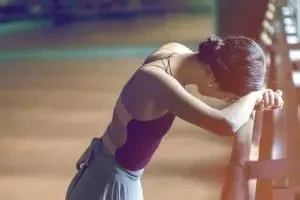
How to Avoid Burnout When You're Taking Too Many Dance Classes
- Understanding Burnout in Dance
- Recognizing the Signs of Burnout
- Practical Tips to Prevent Burnout
- Self-Care Strategies for Dancers
- Creative Edge Dance Studio Recommendations
Understanding Burnout in Dance
As a dancer, it's easy to get caught up in the excitement and joy of constantly improving your skills and technique. However, when you push yourself too hard, especially by taking too many dance classes, you may begin to experience burnout. Dance burnout is a state of physical, emotional, and mental exhaustion that occurs when you overextend yourself. The physical demands of dancing, combined with the mental focus required, can take a toll on your body and mind, leading to fatigue, frustration, and a lack of motivation. Understanding the causes of burnout is the first step in preventing it.

Next Step Dance / the next step dance studio
10850 Frisco St #200, Frisco, TX 75033, USA
Recognizing the Signs of Burnout
Knowing when you're approaching burnout is crucial to avoiding it. Here are some common signs to look out for:
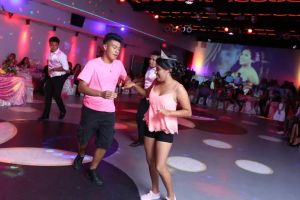
Galactic Dance Studio / quinceanera choreography near me
8501 Long Point Rd, Houston, TX 77055, USA
1. Physical Fatigue
If you find yourself constantly feeling exhausted, even after a good night's sleep, your body might be telling you that it's overworked. Physical fatigue can manifest as sore muscles, joint pain, and general tiredness that doesn't go away with rest.
2. Loss of Motivation
While it's normal to have days when you're not feeling your best, an overall lack of motivation to attend dance classes can be a sign of burnout. When you lose interest in something you once loved, it’s often a red flag.
3. Decreased Performance
If your performance in class begins to drop, even though you're putting in extra effort, it could be because your body and mind are overstressed. Decreased flexibility, poor coordination, and an inability to focus on technique are common signs of burnout.
4. Irritability and Frustration
Feeling frustrated or irritable, especially when you're usually patient or calm, is another sign. Burnout can cause emotional stress, leading to mood swings and an inability to handle the usual challenges of dance classes.
Practical Tips to Prevent Burnout
Fortunately, there are steps you can take to prevent burnout from happening. Below are some practical tips to help you avoid overworking yourself while still enjoying your dance journey.
1. Set Realistic Goals
It's important to set achievable goals for yourself, both short-term and long-term. Rather than trying to take every class possible, focus on a few that will help you improve the areas you need most. Setting clear goals helps you prioritize and avoid spreading yourself too thin.
2. Take Breaks Between Classes
Rest is just as important as practice. If you’re taking multiple dance classes a week, make sure to schedule rest days in between to allow your body to recover. Resting helps prevent physical burnout and allows you to approach each class with renewed energy and focus.
3. Mix Up Your Dance Styles
Sometimes, burnout occurs when you stick to the same type of dance class for too long. Experimenting with different dance styles can bring a fresh perspective and reinvigorate your passion. For example, alternating between ballet, contemporary, jazz, and hip-hop can keep things exciting and challenge your body in new ways.
4. Listen to Your Body
Your body knows when it's had enough. Pay attention to the warning signs your body gives you. If you're feeling pain or discomfort, take a step back and rest. Continuing to push yourself can lead to injury or prolonged fatigue.
5. Stay Hydrated and Nourished
Fueling your body properly is essential to maintaining energy levels. Ensure you're eating balanced meals and drinking enough water. Proper nutrition helps your body recover faster and reduces the risk of physical exhaustion.
Self-Care Strategies for Dancers
In addition to preventing burnout, incorporating self-care into your routine can help you manage stress and maintain your well-being as a dancer. Here are some self-care strategies to consider:
1. Stretch and Warm Up
Before and after each class, make sure to stretch and warm up properly. Stretching improves flexibility, reduces the risk of injury, and helps your muscles recover. Incorporating yoga or Pilates into your routine can also be beneficial for your overall flexibility and strength.
2. Practice Mindfulness
Mindfulness can help you focus on the present moment and reduce mental stress. Consider taking time each day to practice deep breathing or meditation. This can help you remain calm, centered, and focused during your dance classes.
3. Get Enough Sleep
Sleep is crucial for recovery. Make sure you’re getting enough restful sleep each night, especially if you're taking multiple dance classes. Sleep helps repair muscles and restore energy, so don't sacrifice your sleep for extra classes or late-night rehearsals.
Creative Edge Dance Studio Recommendations
If you're looking for a balanced approach to dance training, consider visiting Creative Edge Dance Studio. We offer a variety of dance classes tailored to your skill level and schedule, with a focus on both technique and self-care. Whether you're just starting out or you're an experienced dancer, we provide a supportive and nurturing environment that helps prevent burnout and promotes healthy, sustainable dance practice.
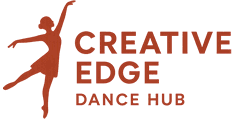
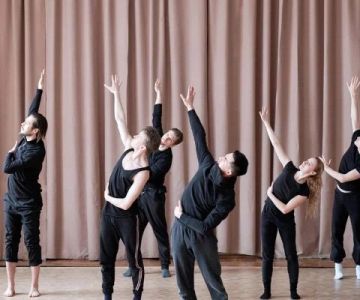

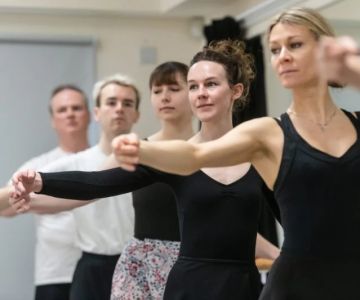



 Ballet Private0.0 (0 reviews)
Ballet Private0.0 (0 reviews) JIVE Dance Shop follow us on FB and IG for business hours5.0 (31 reviews)
JIVE Dance Shop follow us on FB and IG for business hours5.0 (31 reviews)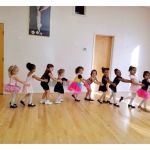 Victoria's Dance Stars4.0 (19 reviews)
Victoria's Dance Stars4.0 (19 reviews)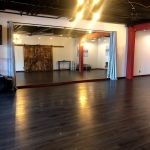 M&M Fitness LKN5.0 (8 reviews)
M&M Fitness LKN5.0 (8 reviews) Dana’s Studio of Dance5.0 (28 reviews)
Dana’s Studio of Dance5.0 (28 reviews)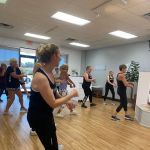 Jazzercise of Conway5.0 (41 reviews)
Jazzercise of Conway5.0 (41 reviews) My Experience With Dance & Peer Support Groups — My Story
My Experience With Dance & Peer Support Groups — My Story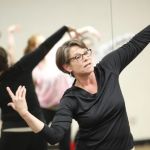 What is Dance Therapy? Using Movement for Healing
What is Dance Therapy? Using Movement for Healing What is Hip-Hop Theater? Blending Styles for the Stage
What is Hip-Hop Theater? Blending Styles for the Stage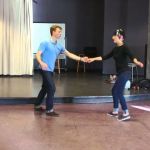 How to Develop Faster Footwork for Any Dance Style
How to Develop Faster Footwork for Any Dance Style htmlCopy codeHow I Learned to Teach Social Dance at Weddings — My Story
htmlCopy codeHow I Learned to Teach Social Dance at Weddings — My Story How to Find an LGBTQ+ Friendly Dance Class: Inclusive Spaces for Every Dancer
How to Find an LGBTQ+ Friendly Dance Class: Inclusive Spaces for Every Dancer